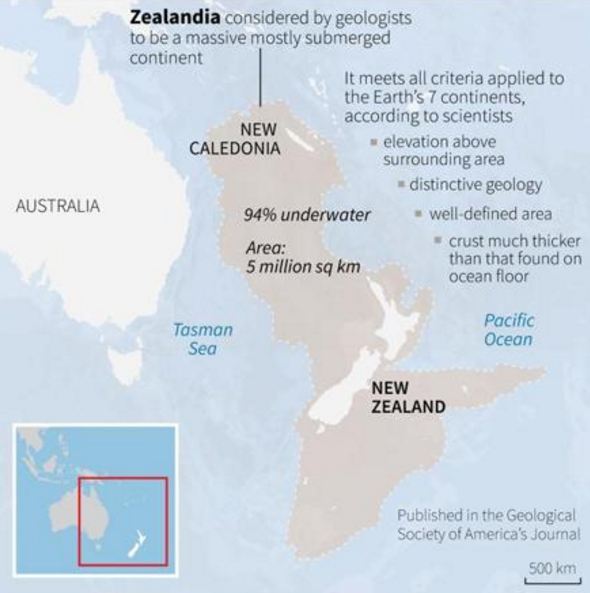All our lives, right from the days in elementary school, we have been taught that there are seven continents on Earth — Africa, Antarctica, Asia, Australia, Europe, North America, and South America. However, future geography books might require adding another continent to the list — the lost continent of Zealandia.
The reason behind our ignorance about the existence of Zealandia can be attributed to the fact that as much as 94% of this ancient landmass has remained submerged underwater. As for the other 6% of it that still lays above water, you may know parts of it as New Zealand and New California.

According to a study in GSA Today, the journal of the Geological Society of America, Zealandia currently spans nearly 2 million square miles, meaning it’s slightly larger than India.
“If we could pull the plug on the oceans it would be clear to everyone we have mountain chains and a big high-standing continent above the ocean crust,” said Nick Mortimer, a geologist at GNS Science in Dunedin, New Zealand, according to the Hindustan Times.
Worth noting, scientists have long speculated the existence of an underwater continent in the Pacific. However, it’s only during the past couple of decades that researchers managed to accumulate enough data and observations to reach the stage where the ‘lost’ landmass could be credibly termed as the eighth continent.
“Since about the 1920s, from time to time in geology papers people used the word ‘continental’ to describe various parts of New Zealand and the Chatham Islands and New Caledonia,” Mortimer said. “The difference now is that we feel we’ve gathered enough information to change ‘continental’ to the noun, ‘continent’.”
Back in 1995, a geologist from the University of California named Bruce Luyendyk coined the moniker ‘Zealandia” which is basically a portmanteau that describes New Zealand, New California, and parts that broke off from Gondwana, an ancient supercontinent.
The most commonly cited hypothesis about Zealandia suggests that it broke away from Australia nearly 80 million years ago — an era when dinosaurs were still dominating the planet.
